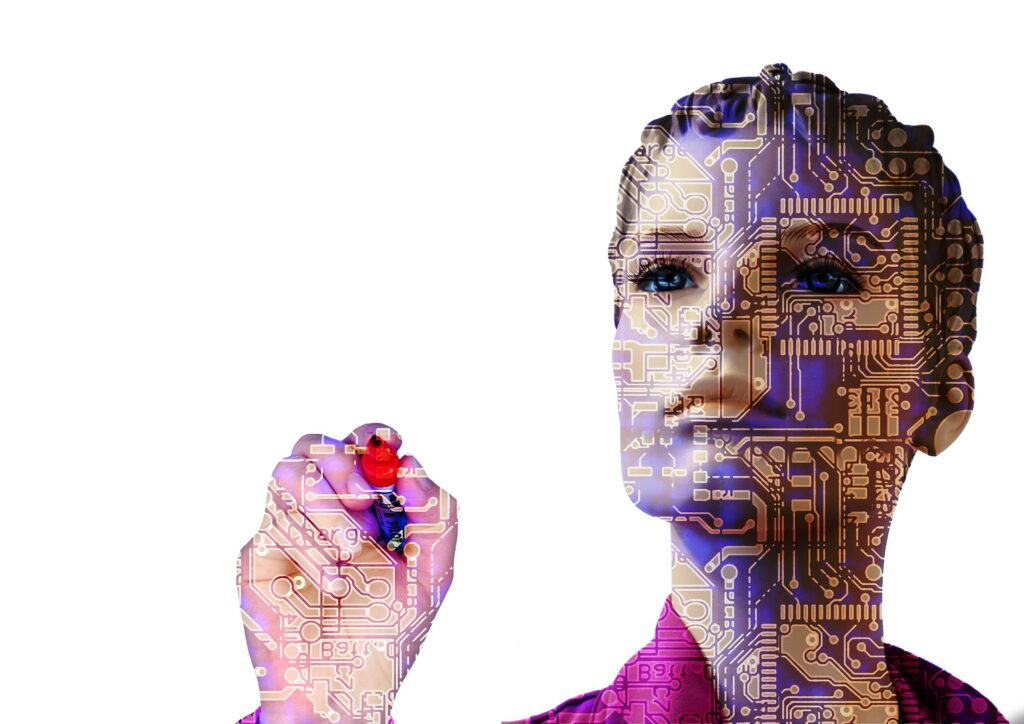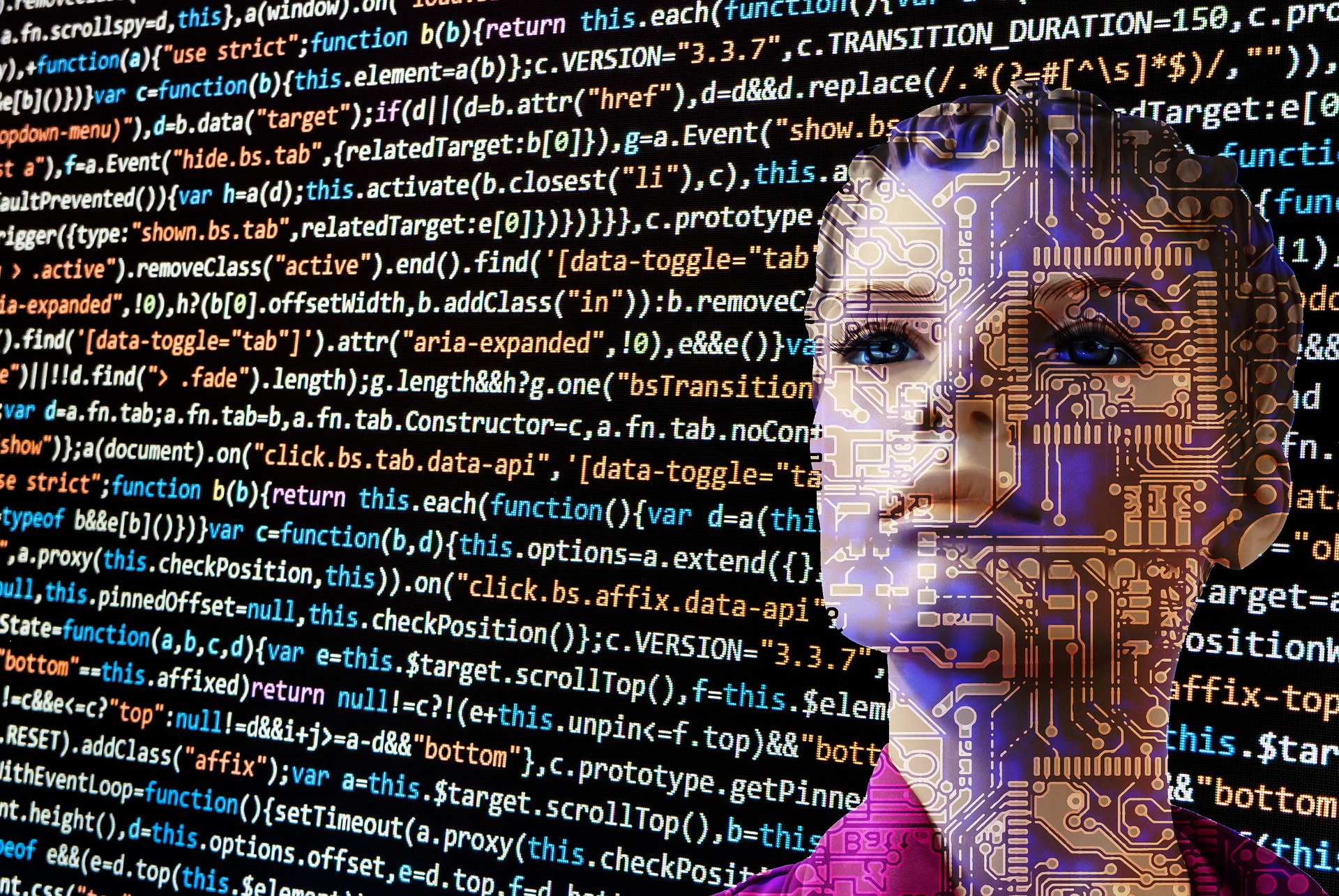No matter how much your operation expands, as the business continues to grow an augmented reality-style individualization of products and services is made possible, and businesses are forced to change their approaches. Nowadays, customers’ expectation is for a tailored experience that reflects their unique needs and preferences. Hence, Artificial intelligence hacks into the scene.
Artificial intelligence (AI) platforms are able to provide a more detailed understanding of customers in order to create a more customized customer experience. These platforms allow businesses to create a more focused and tailored experience for each individual customer, which increases their likelihood click through and converting more leads into sales. Moreover, AI is helping businesses across all marketing functions from lead scoring to nurturing.
In this blog, we will discuss the idea of artificial intelligence, AI’s usefulness in digital marketing, how it functions, and how AI in general works.
What is Artificial Intelligence for digital marketing
Artificial Intelligence (AI) is a kind of general reasoning that mimics human intelligence. While it is a field of computer science, it is also used in an increasing number of business contexts.
The use of AI in digital marketing is a way of automating some processes that are currently handled by humans. In some cases, AI can be used to analyze market conditions or continuously measure and predict online behaviors. In the following sections of the blog, we will present the different types of AI that are helping businesses across the marketing spectrum.
How Does AI Work
Artificial Intelligence can be used by a business to automate processes, and improve data analysis. AI can also replace humans in some tasks in order to produce better results. In the case of digital marketing, AI can be used for many different tasks.
AI was first developed in the ’50s, and since then it has improved and become more advanced and efficient. According to an accepted definition, artificial intelligence is the simulation of human intelligence in devices that adapt to new environments, learn to understand language and perform tasks differently than humans. This definition encompasses the use of AI on devices like virtual assistants, robotics, or automation, and on functions like natural language processing (NLP), machine learning (ML), or computer vision.
It can be used in digital marketing in several ways as the term may also be applied to any machine which exhibits properties typical of a human mind, including learning and problem-solving. Consider Example… In the 1990s, Mark Zuckerberg, a computer science student at Harvard, created a simple face recognition program for use in Chatting with friends and loved ones.

AI Marketing
An important element of automated intelligent technology is that it “learns” from data and experiences; that enables it to be tuned, makes predictions, and essentially “learn” from past experiences.
Artificial intelligence has made astounding advances. Applications of AI are mainly aimed at two types of people: learners and their teachers. Intelligent tutoring can help people learn things. Intelligent personalization can help marketers befriend their customers.
How Artificial Intelligence Marketing Works
AI marketing uses artificial intelligence technologies to make automated decisions based on data collection, data analysis, and additional observations of audience or economic trends that may impact marketing efforts. In AI marketing efforts, speed is essential. These tools use data and customer profiles to learn how to best communicate with customers, then serve them tailored messages at the right time without intervention from marketing team members, ensuring maximum efficiency.
In this sense, AI marketing could ensure recommendations become more personalized every time and feed new data about audiences’ behavioral patterns to become more effective. The next step is to compare how each writer’s most recent post was noticed, liked, replied to, and so on, with the other. Three categories of notes include
Using insights from whatever consumer survey or period has been made available, a marketing research firm will create targeted messages that will resonate with customers and turn them into buyers.
Even though the AI marketing benefits include the best strategy to touch the right prospects and convert them into customers instead, the use of like any other marketing tools is effective, like personalized letters, emails, phone calls, or the use of direct mail, coupons, or contests. The best AI marketing tools analyze and respond to data in real-time, allowing businesses to perform research, analyze data, and respond in a matter
Artificial Intelligence in marketing
There are a variety of web tools available to give communication and engaging tools to your website, including an AI-powered tool, these tools will increase your web presence.
As variety and innovation continue to grow within the artificial intelligence toolbox, they continue to proliferate, allowing you to delve much deeper than what traditional methods would let you see. Today on The Work Street we will be focusing on the six (6) AI tools that you should use to help your business grow and thrive.
The guides listed below all provide valuable collections of website tools, but they hold differing levels of esteem from web-builders. Each guide’s detailed description can be seen below, too. Tap any of the links to learn more about how each concentrates on a specific part of the website-building process.
1. Coremetrics – Market Intelligence Solutions
Coremetrics is an analytics platform that offers a broad range of solutions, including target group and ad optimization, Google Analytics integration, and something called Phantom, and it also does competitor research. This company’s tools are specifically designed for marketers to make data-driven marketing decisions.
2. Google Analytics – Accessible Solutions
Google Analytics is the world’s most popular web analytics tool and it provides businesses with more insights into their customers. It uses artificial intelligence to allow marketers to create more personalized messages that resonate with customers.
3. Moltin – Marketing Automation Solutions
Despite being designed specifically for marketing administrators for small and medium-sized businesses, Moltin’s artificial intelligence technology also compensates for mediums like Kickstarter and StickerMule. Moltin can help marketers write email content, and text messages, that are focused and measurable.
4. LeadScore – Lead Management Solutions
LeadScore is an AI-powered lead management system that helps marketers create personalized messages. It provides lead scoring, lead nurturing, and lead automation tools for small and medium businesses.
5. Tagify – Website Optimization Solutions
Tagify is an AI-powered website optimization tool that improves the ability of businesses to optimize their website’s visibility and calls attention to the content. As a result, it generates highly relevant and accurate content to maximize the number of relevant search terms that describe the content of the page.
7. Xero – Accounting Solutions
Xero is an accounting business that helps you manage your account. Xero also has a suite of AI tools that can help you manage your accounts and make better decisions for your business.
The Advantages Of Artificial Intelligence In Marketing

1. It makes marketing much easier and faster
Artificial intelligence let marketers quickly gather data and track insights across many platforms, and it can provide valuable real-time responses.
2. Marketers can find information quickly that will help make these marketing decisions
Machine learning and AI powers were used effectively by marketers. They can quantify and qualify your efforts using AI tools.
3. Artificial Intelligence allows marketers to create personal messages that allow them to target their products more effectively
AI tools can also be deployed to focus on engaging with your audience and sharing content that will be of interest to them and help your brand’s business.
4. Marketers can utilize artificial intelligence (AI) to speed up manual tasks so that they have time to focus on high-level tasks
With help from AI marketing tools, businesses can automate repetitive tasks such as analyzing data, creating reports, and making recommendations.
5. Marketers will be more creative and innovative with the use of artificial intelligence(AI) in ad campaigns and creative content generation
Artificial intelligence tools let marketers study and experiment with their ideas, enabling them to come up with new and innovative marketing campaigns.
6. AI marketing tools are very flexible and can be used for various marketing campaigns.
They work for purposes such as website optimization, lead generation, customer service, and email marketing.
Disadvantages Of Artificial Intelligence In marketing
1. There will be fewer jobs for people as artificial intelligence is likely to replace humans in the future.
2. The increasing use of AI tools may result in a lack of knowledge and skills of AI users.
3. There are concerns that as AI help becomes more advanced, people will experience decrees in their skills and knowledge.
4. It can be too expensive to maintain.
5. It is still in its early stage, it is still developing.
Conclusion
Artificial intelligence (AI) is a developing field yet businesses must get on this trend fast because it is changing the way brands and marketing departments work. Artificial intelligence solutions can expose brands that have been dormant. Improve customer interactions with the customer data being analyzed. The AI assistants on-site and the employees of the department are now seeing and reporting things unlike they ever have before. A good example of an AI tool is a chatbot like Olivia, which provides support.
